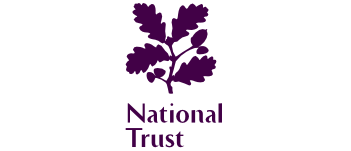3 Things to Learn from HSE’s Year in Review (2023)
HSE has released 2023’s Health and Safety Statistics – QST breaks down 3 key things to learn.
HSE (the national regulator for workplace Health and Safety in Britain) has today published the 2023 edition of its annual statistical roundup. Centred on Occupational Health and Safety in Britain, the report provides damning statistics on the current state of affairs, and highlights the ever growing need for comprehensive Health and Safety training across all industries. This article delves into the key figures, analysing their implications, and advocating for a greater focus on preventative Health and Safety training programmes.
1. Work-related illnesses:
With 1.8 million people suffering from work-related illnesses in 2023, Britain’s workforce faces a veritable Health and Safety crisis. Of this figure, 875,000 workers are currently experiencing work-related stress, depression, or anxiety: a staggering number which underscores both the mental health challenges faced by the workforce, and the imperative need for preventative measures to be taken by employers.
Mental Health
It can be incredibly difficult for many of us to open up about our struggles with Mental Health. Some of us might feel it’s not okay to speak out because of how this honesty might be perceived. Some of us might not know how to put feelings into words, and far too many of us might not have the tools in place to recognise when things are bad, or know the coping strategies which can help us deal with feeling helpless.
With nearly a million people currently facing work-related mental health struggles, it is important to know that no one is alone, and there are places you can turn for advice and support.
Support for Employees
All of us at Quality Safety Training are proud of our partnership with Lighthouse, the most prominent charity for workplace wellbeing in construction. Lighthouse has services including support groups, an online Wellbeing Academy, and a 24/7 hotline for Construction workers who need support – whether it’s with mental health, or with advice on dealing with an existing physical condition. If you’re in construction and need help, support, or advice; please reach out via their website.
If you are not in the construction industry but you need further support, we would highly recommend MIND – the UK’s largest mental health charity. MIND operates a support call system similar to Lighthouse, as well as offering legal advice regarding mental health. You can find out more on their website.
Quality Safety Training is proud to offer a range of in-house support options for both employees and employers alike. Please see the dropdown below for more info.
Support for Employers
We are proud to help employers who wish to do more for the mental health and wellbeing of their staff. Quality Safety Training offers a range of support for businesses nationwide – including Mental Health seminars, E-Learning, and Advisory Services. If you are interested in learning what we can do to help you, please get in touch to see what we can do to help.
Physical Wellbeing
Work-related physical injuries continue to escalate, with an estimated 473,000 workers currently suffering from work-related musculoskeletal injuries. Improper handling of resources and heavy equipment, as well as ignorance of the dangers associated with particular works, can lead to preventable injury. As such, preventative measures like standardised Health and Safety training should be comprehensive, focusing not only on the theoretical implications of safety measures, but also providing real world examples so that delegates have a handy point of reference when they are back out on site. Training should focus on ergonomics, proper lifting techniques, and preventive measures to reduce the incidence of on-site injuries.
2. Casualties:
The loss of 35 lives in work-related incidents this year is a sombre reminder of the urgent need for preventive measures. Even if not every incident is avoidable, we believe no one should suffer injury or loss of life at work, and hope that one day this number will be 0. That is why it is imperative for employers to ensure their staff are well-trained, their sites are assessed regularly, and no one is made to work under unsafe conditions. That is why we are working hard to provide easy-to-access, affordable training packages across the UK – to ensure everyone can have the knowledge and skills required to create safer workplaces.
Health and Safety training can equip workers with the knowledge and skills to identify potential hazards, follow safety protocols, and respond effectively in emergency situations – sometimes preventing incidents from occurring entirely. Thankfully, many competency based assessments are now written into law, making it harder than ever to go to work without the correct training and skill set in place. Comprehensive training programmes are essential to provide workers with the skills they need, but factors of liability for an incident go a long way in helping to instil a safety-conscious mindset in the workforce.
Mesothelioma Deaths
Unfortunately, as industry standards evolve, we sometimes only come to realise the extent of workplace risk many years after a worker may have been exposed.
The most recent statistic, from 2021, records an alarming 2,268 mesothelioma deaths due to past asbestos exposure: highlighting the long-term devastation caused by what we now know to be unsafe working environments. As our understanding evolves, so does our safety; with new ways to prevent exposure and deal with risks emerging as we learn more.
What steps can we take to help prevent exposure?
Thankfully, we now have the tools in place to allow workers and employers to mitigate these risks. There are a number of steps you can take to limit your exposure to Asbestos on site:
- Do not use tools or equipment that might create a lot of dust, such as power tools.
- Do not sweep up dust and debris – use a Type H vacuum cleaner, or wet rags.
- Double bag all waste and clean as you go.
- Never take home overalls used for asbestos work.
- Do not reuse disposable clothing or masks
- Minimise eating, drinking and smoking in the work area.
QST is proud to offer our in-house Asbestos Awareness training which is designed to help workers identify and avoid coming into contact with Asbestos on-site.
If you need to go a step further and you require training on Asbestos Removal, please get in touch to see what options you have available to you.
3. Economic Impact:
As so many people’s lives are changed through work-related illnesses, the people-cost is plain to see. What may be less obvious, however, is the productivity pitfall in lost working hours due to work-related illnesses.
Regarding the British Economy: Between 2022 and 2023, work-related illness is believed to be directly responsible for £20.7 Billion in lost productivity. In context, this figure is believed to be nearly double what it would cost to fix all local roads across the nation.
With the human and economic cost just as large as it has ever been, HSE’s statistics paint a stark relaity of the challenges faced by the workforce, and highlight the ever growing importance of comprehensive health and safety training. The staggering figure of 35.2 million working days lost due to work-related illness and injury further underpins the economic consequences of inadequate safety measures. Businesses incur substantial costs, not only in terms of absenteeism, but also due to reduced productivity – and society bears the wider strain on healthcare resources.
It has never been more important for businesses and individuals to keep up to date with their awareness of workplace hazards. If you know you or your team are behind on your training, or you feel you need to brush up on your skills, please take a look at our available courses. Alternatively, we will always welcome a conversation about what we can do to help.
In Summary
Below we have provided a simplified breakdown of the statistics provided in the HSE report. If you would like to learn more, please refer to their statistics webpages for more information.
– 1.8 million working people suffering from a work-related illness, of which;
– 875,000 workers suffering work-related stress, depression or anxiety
– 473,000 workers suffering from a work-related musculoskeletal disorder
– 2,268 mesothelioma deaths due to past asbestos exposures (2021)
– 35 workers killed in work-related accidents
– 561,000 working people sustained an injury at work according to the Labour Force Survey
– 60,645 injuries to employees reported under RIDDOR
– 35.2 million working days lost due to work-related illness and workplace injury
– £20.7 billion estimated cost of injuries and ill health from current working conditions (2021 to 2022)
The statistics on work-related health and safety in Great Britain for the year 2022 to 2023 present a compelling case for the urgent implementation of comprehensive health and safety training programmes. The human, economic, and societal costs of workplace accidents, illnesses, and fatalities are too substantial to ignore. But what can be done to help prevent incidents and injury?
Effective training initiatives must cover a wide range of topics, including mental health awareness, ergonomic practices, hazard identification, and emergency response. Furthermore, collaboration between employers, government agencies, and educational institutions is crucial to create a culture of safety that becomes apparent at every level of the workforce – from apprentices to directors.
Providing staff with health and safety training is not only a moral obligation, but also a legal requirement in many cases – all to ensure the well-being of the workforce. By investing in robust training programmes, businesses can create safer workplaces by reducing the incidence of accidents and illnesses, and save money lost to productivity by encouraging safe sites and risk-aware employees.
If you know you have training to undertake, or you need advice – don’t leave it to chance. Get in touch with our team of dedicated Safety Advisors using the contact details below, and find out how we can support you.
📲 – 0333 3355 426
✉️ – training@qualitysafetytraining.co.uk
💻 – https://qualitysafetytraining.co.uk/contact-us/
Safety by Choice, not by Chance.
Please note, this article contains public sector information published by the Health and Safety Executive and licensed under the Open Government Licence.
130+ Years Experience
National Coverage
CITB ATO
EUSR Centre
NPORS Centre
SPA Centre
















Get Started Today
Our friendly and knowledgeable team are here to help. Give us a call today to find out how we can help you. As we have our own training facility we can quickly design and deliver a wide range of training packages.
